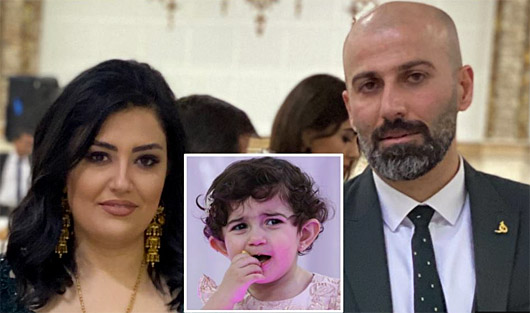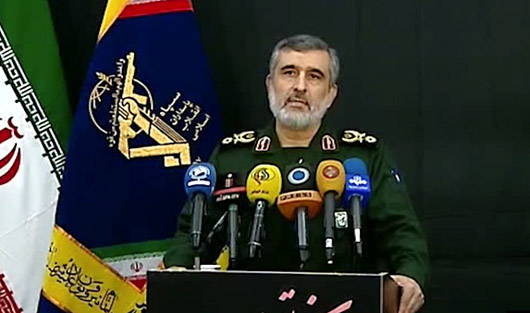Special to WorldTribune.com
By Golnaz Esfandiari, Radio Free Europe / Radio Liberty
Iran’s admission that it was responsible for the Jan. 8 downing of a Ukrainian passenger jet, which killed all 176 people on board including many Iranians and Iranian-Canadian citizens, has led to anger and accusations of recklessness and incompetency against the country’s leaders.

A Jan. 11 Iranian military statement said the Ukraine International Airlines flight was mistaken for a “hostile target” after it turned toward a “sensitive military center” of the Islamic Revolutionary Guard Corps (IRGC). The military was at its “highest level of readiness,” it said, amid the heightened tensions with the United States.
Related: Iranians on Soleimani ‘mourning period’: What about ‘the young people massacred’ in November? January 3, 2020
Teheran’s admission of guilt could undermine the massive display of unity at the multi-city funeral of top Iranian military commander Qasem Soleimani, who was assassinated by the United States on January 3, and which the Iranian authorities claimed sparked a revival of the 1979 revolution.
On Jan. 11, amateur video posted on social media showed protesters gathered outside Teheran’s Amir Kabir university chanting “dishonorable,” an apparent reference to Iranian leaders, while calling for justice over the shooting down of the plane.
“Resignation is not enough,” angry protesters chanted. “A trial is necessary.”
Some Iranians have asked why planes were allowed to fly over the Iranian capital hours after Iran launched a missile attack on two military bases housing U.S. forces in Iraq, which could have prompted retaliatory action by the United States.
Lawmaker Heshmatollah Falahatpisheh said authorities should have suspended civilian flights due to the “war conditions” the country faces. “We’ve seen in various wars that when the smallest missile is fired, airports are immediately put on standby and flights suspended,” he was quoted as saying on January 11 by Iranian media.
Others have called for accountability and the resignation of officials responsible for the downing of the plane. There was also criticism of what was widely seen as an initial attempt by the Iranian authorities to cover up the cause of the tragedy.

Officials had been initially defiant in the face of multiple allegations by Western officials and a growing body of evidence from investigators that an Iranian missile had hit the Ukrainian plane.
“What is obvious for us, and what we can say with certainty, is that no missile hit the plane,” Ali Abedzadeh, the head of Iran’s national aviation department, had told reporters on January 10, just hours before Teheran admitted guilt for the deadly incident.
Speaking on Jan. 11, the aerospace commander of the IRGC, Amirali Hajizadeh, accepted full responsibility for the tragedy and said he will obey whatever decision might be taken regarding the consequences.
“I would prefer to die rather than witness such an incident,” Hajizadeh told reporters, while adding that a communications failure had caused the disaster at a time when the country’s armed forces had been on high alert in case of retaliatory strikes by the United States.
Ehsan Bodaghi, a parliamentary reporter for the official government daily Iran, said two sets of officials — those responsible for the shooting of the plane, as well as those who “told lies to fool the public” — should resign and face justice.
Calls For Transparency
On the popular news site, Asriran.com, journalist Jafar Mohammadi wrote, “If the Ukrainian plane was hit with one missile, public trust was hit with thousands of missiles.” “Human error is acceptable but dishonesty with the people never,” Mohammadi said.
“As an Iranian citizen, don’t I have the right to ask for the resignation of the commander of the IRGC and other responsible officials?” journalist Ali Aslan Shahla asked on Twitter. Another journalist, freelancer Mojtaba Fathi, said that “[the authorities] were supposed to take a harsh revenge on America, not the people.”
The tragedy also led to calls for regime transparency, including over a violent November 2019 crackdown on antiestablishment protesters that according to Amnesty International killed more than 300 people.
“I hope the authorities learn a lesson from this bitter incident and stop covering up the [November] death toll,” Emadedin Baghi, a journalist and human rights activist, said on Instagram.
Reformist politician Mostafa Tajzadeh, an acting interior minister under former reformist President Mohammad Khatami, apologized to the Iranian people over the state “lies.” “I must admit I couldn’t believe all the lies, secrecy, and deceit in the Islamic republic. Why and how did we reach this point?” Tajzadeh said on Twitter, adding that he’s “deeply” sorry.
